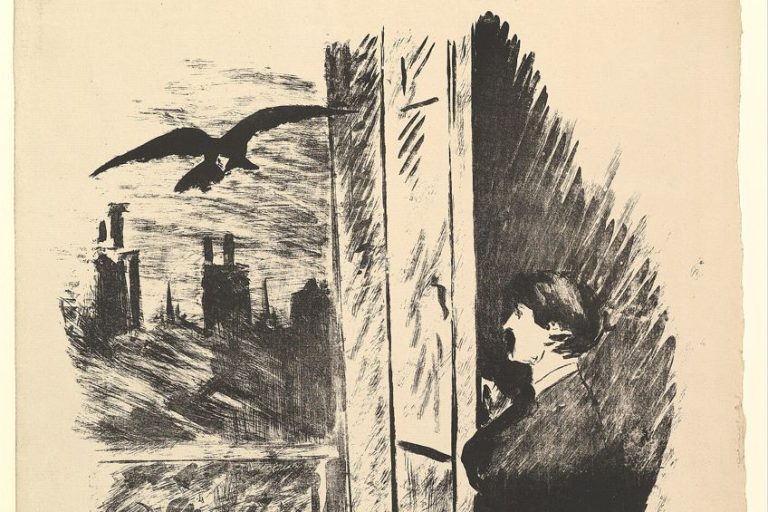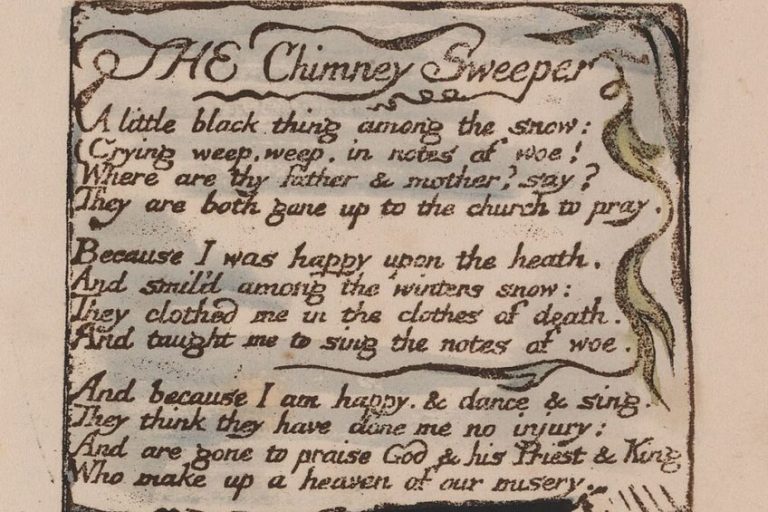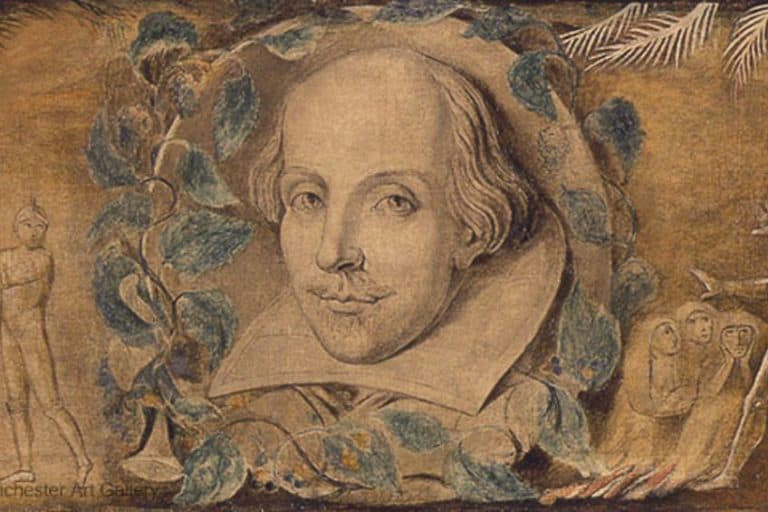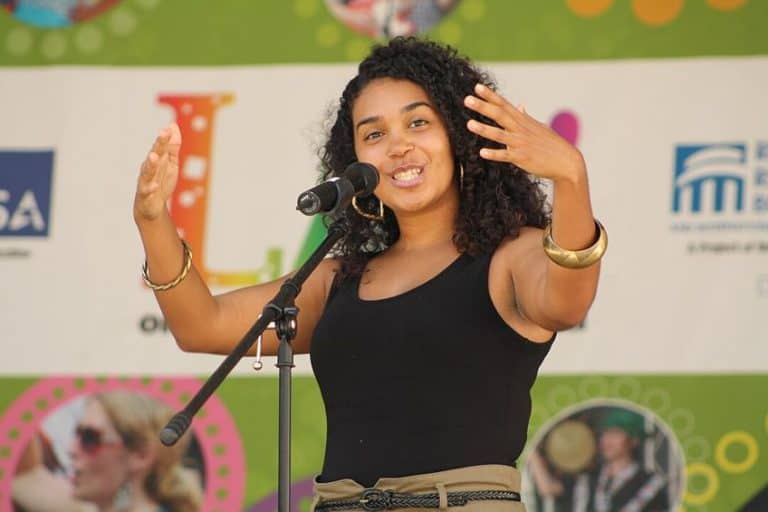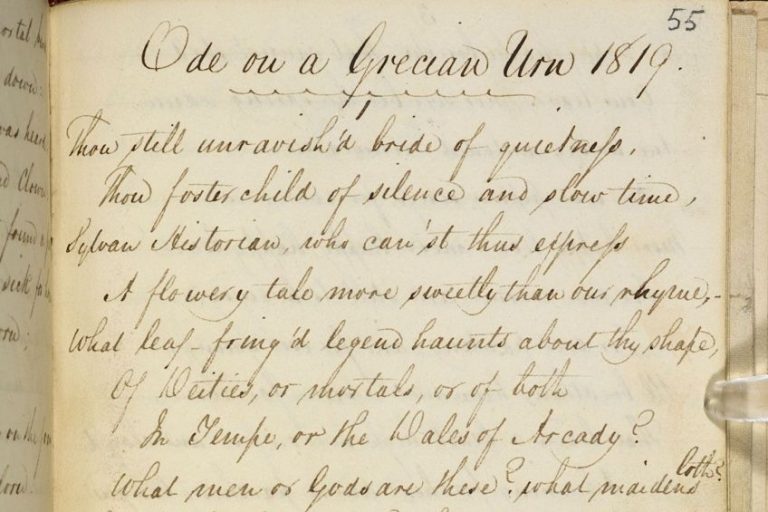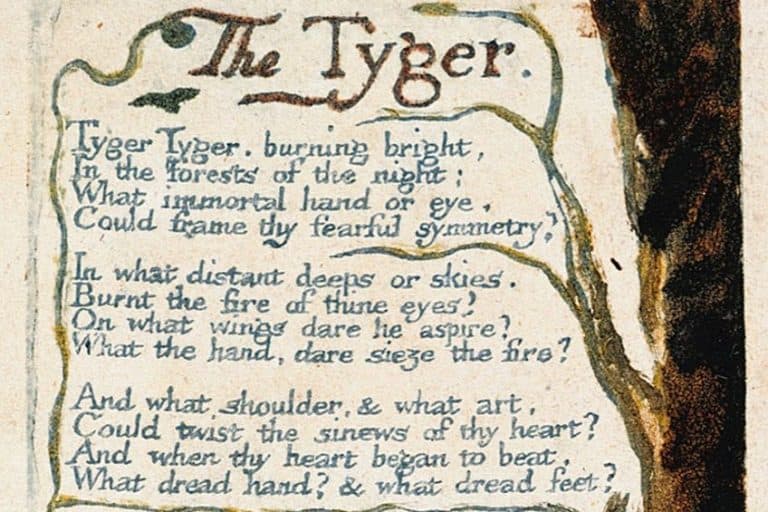Paradox in Poetry – Definition, Types, and Famous Examples
Is life paradoxical? I mean, sometimes, but not always. However, when a poem has made explicit use of the paradox, then it is likely saying something on a deeper level about the topics that it is exploring. This is a common reason for the usage of this particular device. However, our goal today will be to look at a lot more than that! We shall discuss the meaning of the term, some of its uses, the actual reasons that poets decide to make use of the paradox in poetry in the first place, and a few paradox poetry examples. Hopefully, this should result in a good overview and understanding of the topic. However, we’ll only know that if we keep reading!
A Look at Paradox in Poetry
There are many different literary devices out there in the wide world, and they are all used for so many different and diverse reasons. One of those literary devices is the paradox. This is a very fascinating form because of its inherently and deliberately contradictory nature. This will be the focus today. We will have a look at paradoxes in poetry and how they work, but before any of that deeper dive stuff, let’s instead have a summary for those who may need it.

Summary of Paradox in Poetry
Paradoxical thinking can be rather confusing and complicated, but that’s why we are having a look at the paradox in poetry rather than the paradox in general. In addition, to help us to understand and remember all of these ideas, we can first have a look at this short summary of the kinds of ideas that we will be exploring over the course of the entire article:
- The paradox in poetry is a contradictory statement or idea. This implies to us that the paradox in poetry might come across as an error of some kind, but this is not the reality of the situation. Instead, the paradox is something that is typically used deliberately for some purpose within the text.
- The paradox in poetry is distinct from the oxymoron. Some might confuse these two concepts with one another seeing as they do appear somewhat related to one another. However, an oxymoron is more of a contradictory phrase than a larger contradictory idea, such as the phrase: “Loud silence”.
- The paradox in poetry has many functions and uses. A poet may make use of the paradox in poetry for a variety of reasons, such as using it to highlight some concept, to encourage deeper thought on a topic, or to confuse the audience in some or another way. There is no universal purpose to the paradox in poetry.
Whenever it comes to learning and understanding some concept, I have always found that making good use of summaries is a fantastic way to remember things. However, making summaries is something that you should also do if you need to learn this kind of information for a formal environment, such as a school.
For our purposes, this summary should tide you over.
A Definition of Paradox in Poetry
Before we proceed with anything, we should probably ask a rather obvious question, and that is what a paradox is in the first place. In basic terms, a paradox in general is some kind of a contradictory statement or idea, or at least it appears to be contradictory. The general idea behind a paradox in literature is that it then forces you to think about the paradox in question. A paradox could, theoretically, be made by mistake, but we generally take it as intentional when one is found in a text.

It can often be best to muse on these kinds of ideas in a more specified way. Having a discussion with my students was often the best way that I taught them ideas like this. So, let’s take a very famous paradoxical expression, such as “youth is wasted on the young” (which is typically attributed to George Bernard Shaw). Why is this paradoxical? Essentially, it is saying that the people who are young do not know how to be young properly. The young are, basically, wasting their own youth by not knowing how to have their own youth. It is contradictory but also makes sense. The expression is saying that when you’re young, fit, energized, and so on, you probably don’t appreciate what all of those things mean for you.
You are, in that sense, wasting it in the eyes of those who are older and can no longer do what they wish to do with their bodies.
The Uses and Functions of Paradox in Poetry
There are many different possible uses of the paradox in poetry. At the most basic level, the paradox exists to force the reader to think more deeply about some concept or idea. This allows the poem to explore some ideas that may reveal some truth that has otherwise been obscured. In addition, it could be used as a means of forcing the audience to sit up and pay attention or to convey ideas that may otherwise be complex and difficult to grasp. When it comes to the paradox in poetry, there is no singular reason for its use.

For instance, I have mostly focused on how it is something that can allow us to explore deeper ideas, but it can also be used to confuse and disorient an audience. Not every use of the paradox in poetry is in service to some deeper goal that forces us to question the very thoughts and beliefs that we possess. For instance, paradoxical ideas, statements, and so on can be found in the works of figures like Lewis Carroll, who produced nonsense literature that was bizarre and strange to read. So, the reasons for the paradox are multifaceted and immensely variable.
The Oxymoron Versus the Paradox in Poetry
I have already mentioned how the paradox in poetry is not an error as it is a deliberate device. However, it can appear to be an error because it is contradictory, and a contradiction is generally something that we see as a negative. This is also where we come to the idea of the oxymoron. This figure of speech is often labeled as an error, but it is not necessarily an error at all. An oxymoron, as opposed to a paradox, combines two contradictory words to create some new expression, such as “peaceful war”, which seems like it is a contradiction, but upon looking at it more closely, we can understand what someone might mean by a statement such as this.
Ultimately, this indicates that the oxymoron is more of a paradox on a smaller, more grammatical scale than the paradox, which can be a lot larger and more detailed.
A Few Paradox Poetry Examples
How do you learn about something? Do you do it in the abstract, or do you go straight in there and actually look at some proper instances of a form? Well, obviously the latter! And I can with experience as a teacher that when giving some proper examples of a thing, your students will often learn that thing much better than before. This is the reason that I would give for having a look at a number of paradox poetry examples below. It’s good to know how these ideas will be used in reality. So, let’s do just that!

Holy Sonnets: Batter my heart, three-person’d God (1633) by John Donne
| Date Published | 1633 |
| Type of Poem | Sonnet |
| Rhyme Scheme | ABBA ABBA CDCDC EE |
| Meter | Iambic pentameter |
| Topic | Crisis of faith |
Holy Sonnets: Batter my heart, three-person’d God is a poem that centers on a crisis of faith, and much like loads of the poems by John Donne, it incorporates sensual and evocative language. It is unusual in its presentation of a sort of sexual longing for faith, and this has made it into something unique among poems of its kind. However, when it comes to the use of paradox in poetry, this text makes use of a variety of paradoxical ideas and ironic musings. For instance, it paradoxically focuses on divine love from God as something more erotic than something pure, which is the way that we are generally taught to experience love from the Christian deity.
This produces an unusual response in the audience as they wonder why there is a seemingly contradictory view of love on display in the poem in question.
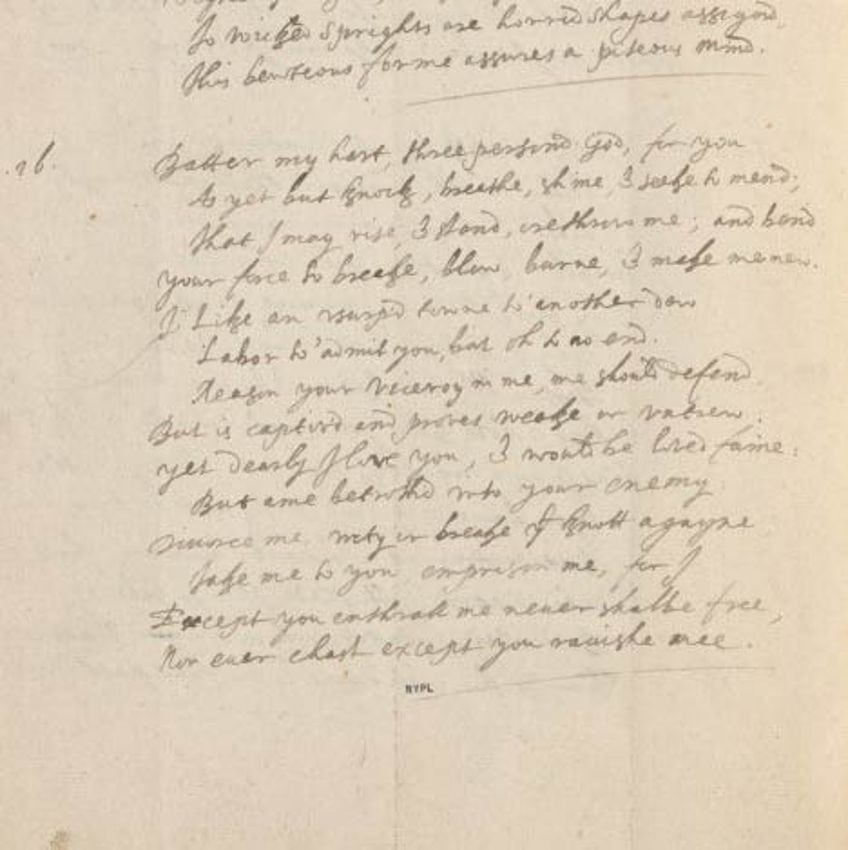
Waiting for the Barbarians (1898) by C.P. Cavafy
| Date Published | 1898 |
| Type of Poem | Narrative poem |
| Rhyme Scheme | None |
| Meter | Variable |
| Topic | The arrival of the barbarians |
Waiting for the Barbarians is a poem that makes use of a very concrete understanding of the impending arrival of the so-called “barbarians”. Everyone is preparing for when the barbarians are going to reach the city, and everything is going to change because of them. For instance, they will likely tear down the many pillars of civilization for which the city has become known. The poem strays into the realm of the paradox in poetry because of this strange fixation on a destructive force, like the barbarians, being revered. We expect the poem to tell us that the arrival of the barbarians will be a terrible and dangerous thing, but when they don’t arrive at all, everyone is disappointed. Why are they disappointed? Why do they have this reliance on an invading force to give their lives meaning?
These are the kinds of questions paradox poetry examples are able to present to the reader.

The Tuft of Flowers (1913) by Robert Frost
| Date Published | 1913 |
| Type of Poem | Narrative poem |
| Rhyme Scheme | AABB |
| Meter | Iambic pentameter |
| Topic | Isolation and friendship |
The Tuft of Flowers is a poem that fluctuates between images of the natural world and the notions of both friendship and isolation. It ponders these kinds of thoughts as the speaker enters a field that has already been mowed. The one who mowed the field has already disappeared and continued with his day. The speaker, at seeing what has been done, feels a paradoxical sense of connection to this person who is no longer there while also feeling an immense sense of loneliness. The poem leads us to consider how something like this could transpire. The feeling of being both connected and disconnected may seem immensely contradictory, but it is something that many of us can likely relate to in our day-to-day lives because the world is a rather strange place in which our thoughts are not always direct. We can hold conflicting thoughts in our minds at the same time, and this poem expresses that kind of feeling.

This may not have been the longest article that has ever been written on the use of the paradox in poetry, but it should have provided a good understanding to those who wish to know some more about it. We have looked at what a paradox is in the first place, some of the uses and reasons for its existence, its relation to the oxymoron, and a number of paradox poetry examples. While this should have given a good general overview of the idea, there is always more that one can learn. So, if you do want to search for a few other examples of paradox in poetry, there’s a whole internet at your disposal!
Frequently Asked Questions
What Is Paradox in Poetry?
The paradox in poetry is the same as the paradox in any other form of literature. Essentially, it is some kind of a statement, idea, phrase, and so on, that is contradictory in some way or appears to be so. However, paradoxes are often invoked to incentivize the audience to think about what has been presented and what it tells us about the ideas being explored. It may force the reader to think more deeply and to critically engage with the subject rather than simply passively accept it.
What Are the Uses of Paradox in Poetry?
There are many different uses for the paradox in poetry. For instance, it could be used as a means of forcing the reader to engage more closely with the text, to build some sense of intrigue or confusion, to explore deeper and more complex topics, or to simply produce a more confused response in the audience. All of these uses can be incorporated for many different possible reasons.
Why Do Poets Use Paradox in Poetry?
There are many different uses of the paradox in poetry, but this does not truly highlight why a poet might wish to make use of the paradox. We cannot know the intentions of a writer because we cannot read their minds, but we can often infer from the kinds of topics on display what may have been the motive behind the use of the paradox. They can often be used to create a harder-to-understand text, something more complex, or to provoke the audience to think about something. However, why have poets done this? Each poem and instance of paradoxical writing will have a different purpose behind it, but we can attempt to glean what we can from each poem to try and understand its motives.
Is the Paradox in Poetry an Error?
The paradox in poetry is not an error at all. It is instead a literary device that is used deliberately. Although, someone could have written a paradox by mistake, and this could be seen as an error. However, we cannot know the intentions of the writer, so if a paradox does feel like a mistake, we may never know if that is the case. It is generally best to accept that paradoxes have been produced on purpose if for no other reason than it is significantly more interesting if we take them for what they are rather than challenging their inclusion in the first place.
What Are Some Famous Paradox Poetry Examples?
The paradox in poetry has been around for a very long time, and while some movements, such as the metaphysical poets, took the concepts of the paradox to greater heights, there has been the use of it for far longer and in different ways. Some of the best-known paradox poetry examples include Holy Sonnets: Batter my heart, three-person’d God (1633) by John Donne, Waiting for the Barbarians (1898) by C.P. Cavafy, and The Tuft of Flowers (1913) by Robert Frost. However, there are many more instances of the paradox in poetry than in this short and summarized list.
Justin van Huyssteen is a freelance writer, novelist, and academic originally from Cape Town, South Africa. At present, he has a bachelor’s degree in English and literary theory and an honor’s degree in literary theory. He is currently working towards his master’s degree in literary theory with a focus on animal studies, critical theory, and semiotics within literature. As a novelist and freelancer, he often writes under the pen name L.C. Lupus.
Justin’s preferred literary movements include modern and postmodern literature with literary fiction and genre fiction like sci-fi, post-apocalyptic, and horror being of particular interest. His academia extends to his interest in prose and narratology. He enjoys analyzing a variety of mediums through a literary lens, such as graphic novels, film, and video games.
Justin is working for artincontext.org as an author and content writer since 2022. He is responsible for all blog posts about architecture, literature and poetry.
Learn more about Justin van Huyssteen and the Art in Context Team.
Cite this Article
Justin, van Huyssteen, “Paradox in Poetry – Definition, Types, and Famous Examples.” Art in Context. January 31, 2024. URL: https://artincontext.org/paradox-in-poetry/
van Huyssteen, J. (2024, 31 January). Paradox in Poetry – Definition, Types, and Famous Examples. Art in Context. https://artincontext.org/paradox-in-poetry/
van Huyssteen, Justin. “Paradox in Poetry – Definition, Types, and Famous Examples.” Art in Context, January 31, 2024. https://artincontext.org/paradox-in-poetry/.




